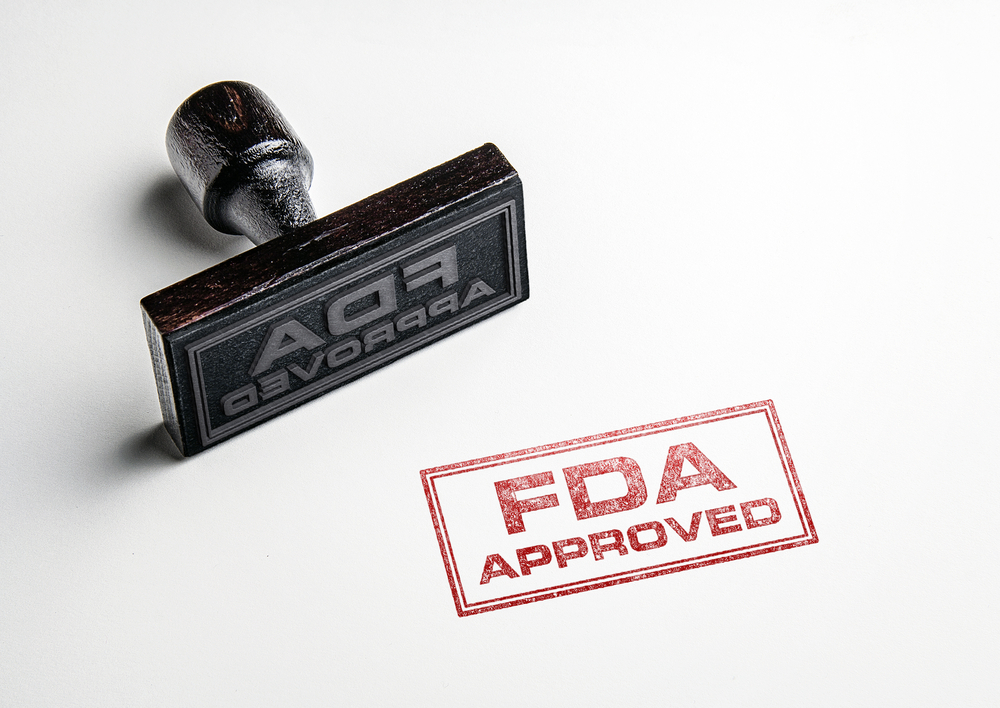FDA Approves Shorter Infusion Time for MS Therapy Ocrevus
Written by |

The U.S. Food and Drug Administration has approved a shorter infusion time of Ocrevus (ocrelizumab) for treating relapsing or primary progressive multiple sclerosis (MS).
Infusion refers to the slow delivery of a therapy directly into the bloodstream over a period of time. The decision shortens the twice-yearly infusion time to a two-hour session from the previously approved 3.5 hours. This may ease Ocrevus’ administration burden for patients and have a positive impact on healthcare resources.
“More than 170,000 people with MS have been treated with Ocrevus — the only approved B-cell therapy with a twice-yearly dosing schedule — and it is the most prescribed MS medicine in the U.S.,” Levi Garraway, MD, PhD, chief medical officer and head of global product development at Genentech, said in a press release. A subsidiary of Roche, Genentech is the developer of Ocrevus.
“We constantly strive to improve the experience that patients and their physicians have with our medicines, and we believe people with relapsing and primary progressive MS will find the shorter two-hour Ocrevus infusion time to be more convenient,” Garraway said.
The approval comes nearly eight months after the agency accepted for review Genentech’s application, and follows a similar decision in the European Union.
Ocrevus is an anti-CD20 monoclonal antibody that works by targeting mature B-cells, a type of immune cell that drives the inflammation that damages the nervous system in MS.
It is approved in the U.S. to treat relapsing forms of MS (including relapsing-remitting MS and active secondary progressive MS) as well as primary progressive MS. Ocrevus also is approved in Europe.
Ocrevus’ dosing schedule involves two 300 mg infusions, given two weeks apart, followed by 600 mg infusions every six months. As per the conventional infusion time, the therapy is typically administered over 3.5 hours.
However, the whole process usually takes about 5.5–6 hours, as it also includes a premedication and infusion setup that can take up to an hour, and a post-infusion observation period for another hour.
The approval of the shorter infusion time was based on positive data from the ENSEMBLE PLUS Phase 3 clinical trial (NCT03085810), which is evaluating the safety and effectiveness of the shorter, two-hour Ocrevus infusion against the conventional 3.5 hours in people with early stage relapsing-remitting MS.
Participants received the first two 300 mg infusions over the typical 3.5 hours, after which they were assigned randomly to receive either the shorter infusion or the standard infusion for the subsequent 600 mg doses.
The trial’s main goal was to compare the frequency and severity of infusion-related reactions (IRRs) — adverse side effects that occur during or within a day of the infusion — between groups after the first 600 mg infusion. (IRRs are the most common side effect associated with Ocrevus treatment.)
Results showed that the shorter infusion’s safety profile was consistent with that of the conventional infusion.
Specifically, the frequency of IRRs was comparable between participants who received the two-hour Ocrevus infusion (24.6%) and those given the therapy on its longer, standard infusion schedule (23.1%).
In addition, most of these reactions were mild-to-moderate in both groups, and more than 98% resolved without complications. There were no reports of serious, life-threatening, or fatal IRRs and no participant discontinued treatment due to such reactions. No new safety concerns were identified.
Other safety and efficacy measures also are being evaluated in the trial, which is expected to conclude in 2024.


